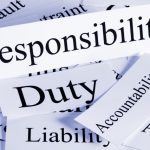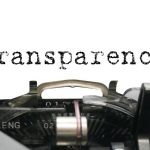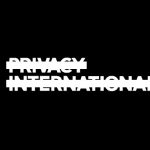It is your duty to use an ad blocker, says Edward Snowden

Ad blocking tools are rarely out of the news these days. In times of heightened awareness about online privacy, more and more people are turning to things like Adblock Plus to banish ads and clean up their web browsing experience. For many people an ad blocker is seen as essential.
Edward Snowden goes further. The former NSA contractor says that it is a web user's duty to protect their computer by blocking potential attack vectors such as Flash and JavaScript-riddled advertisements.
How to avoid online surveillance -- the essential guide

It would appear that mass surveillance of the Internet is here to stay. We can rage against the machine, but ultimately we're powerless to stop the likes of the NSA and GCHQ prying into whatever they want to pry into. More and more people are turning to the dark web to help cover their tracks, but even the supposedly anonymous haven of Tor can be cracked for a price.
Last week in the UK, the draft Investigatory Powers Bill was published outlining proposals for ISPs to retain user's browsing histories for a full year. Governments want to weaken encryption. The FCC ruled that Do Not Track requests are essentially meaningless. The NSA finds and takes advantage of vulnerabilities. It's little wonder that privacy groups are up in arms -- the erosion of online rights continues with terrifying speed. But all is not lost. There are still things you can do to help maintain your privacy. If you're concerned, here's what you can do.
The NSA keeps 9 percent of the vulnerabilities it discovers to itself

Openness and the NSA are not happy bedfellows; by its very nature, the agency is highly secretive. But in recent years, post-Edward Snowden, the organization has embarked on something of a PR campaign in an attempt to win back public trust.
The latest manoeuvre sees the NSA promoting the fact that when it discovers security vulnerabilities and zero-days in software, it goes public with them in 91 percent of cases... but not before it has exploited them. No information about the timescale for disclosures is given, but what most people will be interested in is the remaining 9 percent which the agency keeps to itself.
UK government started online mass surveillance after 9/11 -- but few politicians knew

On Wednesday, the Investigatory Powers Bill was published in draft form, but it was in the wake of 9/11 that the UK government started its mass surveillance programs, spying on the online activities of British citizens. Under the guise of the 1984 Telecommunications Act, this surveillance was moved up a gear in 2005. Former deputy Prime Minister Nick Clegg says that very few politicians knew about it.
Clegg only learned of the surveillance programs that were used to harvest emails, phone records, and texts in 2010, and questioned whether it was necessary. The former PM makes the revelations in an article for the Guardian in which he says that after Edward Snowden NSA and GCHQ spying revelations, "the knee-jerk response from the government was to play the man and ignore the ball".
ISPs to be forced to store users' browsing history for a year

The UK government today published a draft version of the Investigatory Powers Bill setting out a framework for new surveillance powers. Among the proposed measures is a requirement for ISPs to keep a record of every website their customers visit for 12 months.
Fears that encryption would be banned were not realized, but privacy campaigners will be disappointed that internet connection records will be accessible by police and security services without the need for a warrant. The NSA-style data collection is indiscriminate. Data will be stored about everyone's internet usage, not just those suspected of crime, terrorism and the like.
Europe wants to protect 'human rights defender' Edward Snowden from the US

Edward Snowden could have a new friend, and place of exile, in Europe. Currently in Russia, Snowden today found himself the subject of an EU vote seeking to drop any criminal charges against the former NSA contractor.
The vote passed 285 to 281 and is likely to upset the US. This is because member states are also looking to extend protection to Snowden and prevent extradition by third parties, calling him an "international human rights defender".
UK government says app developers won’t be forced to implement backdoors

The UK government is sending mixed messages about how it views privacy and security. Fears have been mounting since Prime Minister David Cameron wondered aloud "in our country, do we want to allow a means of communication between people which we cannot read?" -- his view obviously being that, no, we don’t want to allow such a thing.
Following the revelations about the spying activities of the NSA and GCHQ, public attention has been focused more than ever on privacy and encryption, Cameron having also suggested a desire to ban encryption. Today, some fears were allayed when it was announced that the government was not seeking to require software developers to build backdoors into their products. That said, the government said that companies should be able to decrypt 'targeted' data when required, and provide access to it.
Microsoft launches new Transparency Hub, details content removal requests

In the post-Snowden age, transparency reports are all the rage. After the privacy debate that followed the NSA surveillance revelations technology companies fell over themselves to publish everything they could about government data requests. Microsoft has already released transparency reports, but today unveils a new Transparency Hub.
This is designed to be a central resource through which a variety of reports can be accessed, including the Law Enforcement Requests Report and U.S. National Security Orders Report. Data for the first six months of 2015 is now available, and there is a new section dedicated to Right To Be Forgotten-style requests for data removal.
Hillary Clinton wants Edward Snowden to stand trial

Hero or villain? Opinion is very much divided about Edward Snowden. For Hillary Clinton there is no question -- he is a villain who broke US law and should face trial. The NSA contractor became a topic for discussion between Clinton and Bernie Sanders at last night's presidential debate, and the two candidates had slightly differing views of how he should be treated.
Snowden has said that he would be willing to serve time in jail, going as far as offering himself up to the government. He says that he has received no response -- something that would apparently be very different if Clinton succeeds in her presidential bid. While Clinton is taking a hard line, Sanders offers more leniency.
Top court rules European-US Safe Harbor data sharing agreement invalid

The European Court of Justice has ruled that the Safe Harbor agreement that is in place between technology companies is invalid. The agreement covers the sharing of data between the EU and the US but the court said there are insufficient privacy and data protection checks in place.
European law dictates that data should only be shared with and transferred to countries that offer a comparable level of data protection to the EU. The Safe Harbor agreement has been in operation for around 15 years, but after concerns that European data could be shared with the likes of the NSA it means that companies such as Facebook, Google, and Apple could be sharing data illegally.
Snowden says GCHQ's Smurf programs can tap, hack, and control any smartphone

In an interview with BBC Panorama, Edward Snowden made further revelations about the capabilities of government agencies. Having blown the whistle on the NSA, Snowden has also shed light on the activities of the UK equivalent, GCHQ.
In tonight's interview, the former NSA contractor spoke of the agency's "Smurf Suite" -- a collection of tools that can be used to intercept and control smartphones, even if they're turned off. Named after the blue cartoon characters, the Smurf tools can be deployed via encrypted text message without alerting the handset owner.
Edward Snowden would be willing to go to jail... if the US government would speak to him

Currently in exile in Russia, Edward Snowden recently joined Twitter to give him a public platform to communication with the world. With global interest in surveillance and privacy, the NSA whistleblower still conducts TV and newspaper interviews, and in a BBC interview he reveals that he would be willing to serve prison time.
He has even offered his freedom to the US government... but no one has responded to him. Praised and vilified in just about equal measure, Snowden faces prosecution under the Espionage Act for leaking documents about the activities of the NSA.
Edward Snowden is now a verified Twitter user

Former NSA contractor cum whistle-blower Edward Snowden is now officially on Twitter. Since blowing the lid on the surveillance activities of the NSA and sparking on-going global debate about privacy, Snowden has been a vocal campaigner for freedom of speech, privacy, and surveillance awareness.
Within hours of joining, Snowden -- who managed to bag the @snowden handle -- had amassed over half a million followers, and the flow shows no signs of abating. After a few hours, Snowden has posted just 7 tweets; but more interestingly he is only following one account.
Leaked documents show UK Karma Police program was just as intrusive as the NSA -- and spied on the US

There have been countless stories about the activities of the NSA and the revelations by Edward Snowden continue. A new batch of documents leaked by the former NSA contractor show that GCHQ ran a program called Karma Police that was used to "build a web-browsing profile for every visible user on the internet".
If that sounds a little sinister, that's because it is. You would think that we might have become hardened to this sort of thing, but it is still comes as a slight surprise to learn of the extent of surveillance that has been taking place. The UK government has been building profiles of web users around the world based on their browsing histories (news, porn, social networking, and so on), monitoring email and Skype communication and more for the last seven years.
How to find out if GCHQ and the NSA spied on you, and how to complain

Privacy International has created a platform through which individuals and organizations can file complaints with GCHQ about surveillance of phone calls and internet usage. The charity has long concerned itself with government surveillance, particularly the sharing of data between the NSA and GCHQ.
The legality of mass surveillance has been questioned by many, and it has already been determined that human rights organization Amnesty International was illegally spied on. Edward Snowden's NSA revelations have led to a huge increase in awareness of privacy issues, and now Privacy International is making it easier to find out if you were spied on, and to lodge an official complaint.
Recent Headlines
Most Commented Stories
BetaNews, your source for breaking tech news, reviews, and in-depth reporting since 1998.
Regional iGaming Content
© 1998-2025 BetaNews, Inc. All Rights Reserved. About Us - Privacy Policy - Cookie Policy - Sitemap.